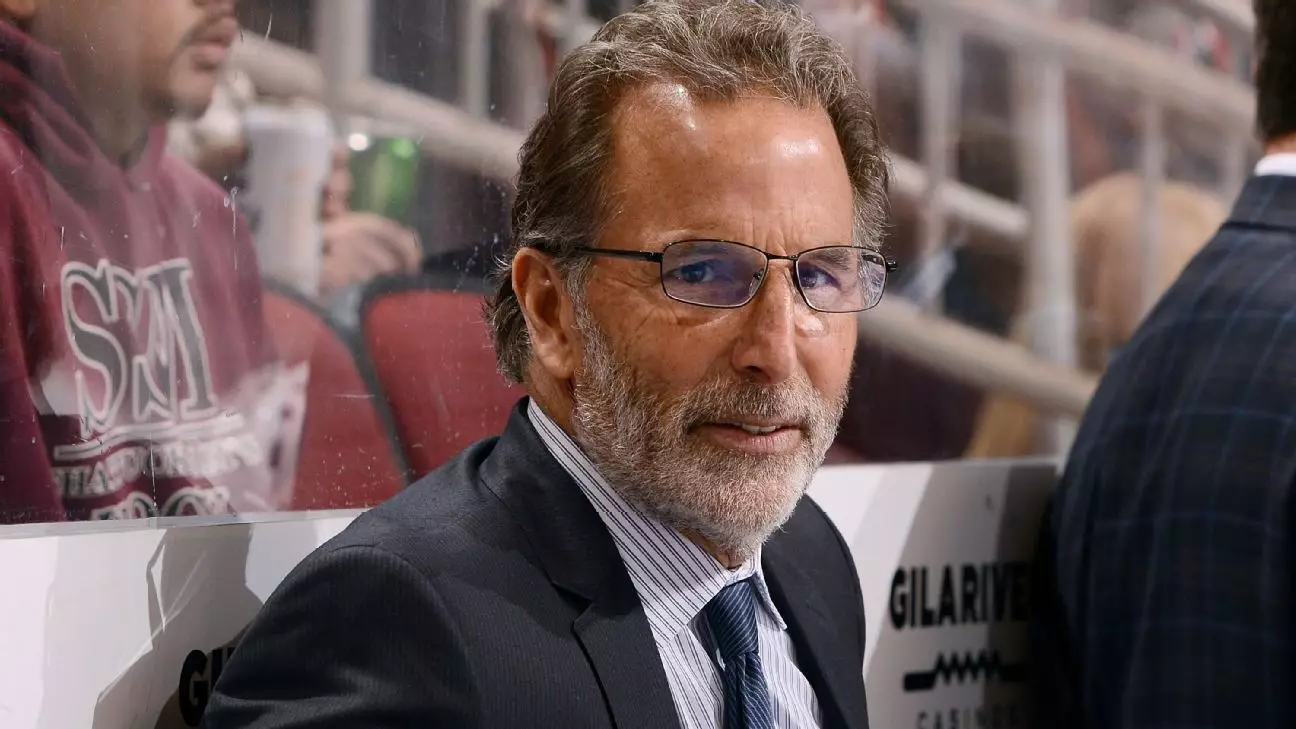In the fast-paced and often tumultuous world of professional hockey, the Philadelphia Flyers find themselves at a crucial crossroads following the dismissal of head coach John Tortorella. General Manager Daniel Briere revealed that the decision stemmed from fundamental differences in opinion between himself and Tortorella, a conflict that reaches deep into the strategic core of the team. Briere’s candid acknowledgment of Tortorella’s complexities highlights an important nuance in coaching dynamics. Tortorella was never an easy fit; he has always worn his tenacity as a badge of honor, challenging not only players but upper management as well. This characteristic is both his greatest strength and a source of friction, making the coaching relationship profoundly intricate.
With a season record riddled with mediocrity at 28-36-9, the Flyers’ performance under Tortorella was anything but stellar, culminating in missed playoff opportunities across his three seasons with the team. His departure after a string of disappointing losses suggests that the franchise is not just seeking a new coach but is yearning for a radical shift in culture—a message that Briere seems to unequivocally endorse.
The Unraveling: A Series of Unfortunate Events
Briere articulated that the internal decision-making process leading to Tortorella’s firing was not an instantaneous choice but rather an accumulation of pressures, particularly in the weeks following the trade deadline. Notably, the team’s painful defeats included a staggering 7-2 loss to the Toronto Maple Leafs, which marked a tipping point in perceptions regarding Tortorella’s effectiveness. His off-hand remark about being “not really interested in learning how to coach in this type of season” reverberated through the organization, symbolizing not just his frustration but perhaps a palpable disinterest in navigating a rebuilding phase. This disconnect, paired with the team’s conspicuous struggles, ultimately fueled the urgency for change.
Briere’s candid remarks suggest a collective realization within the organization—an acknowledgment that the current roster, which has seen pivotal players traded away, requires a different approach moving forward. The painful transitions have indeed taken their toll on the coaching staff, calling into question the viability of retaining a coach who has found himself grappling with a shifting roster and evolving expectations.
Younger Players, Tough Lessons – The Double-Edged Sword of Tortorella’s Approach
Despite the tumult surrounding Tortorella’s departure, it’s essential to recognize the unique environment he fostered for younger players on the Flyers. The coaching style characterized by “tough love” was undoubtedly polarizing. It produced moments of brilliance, particularly in the development of rookie player Matvei Michkov, who thrived under Tortorella’s high standards. The scrutiny and challenges imposed on Michkov have seemingly enhanced his competitive spirit, a testament to the potential benefits of Tortorella’s rigorous methods.
However, it remains critical to assess how many young talents endured the emotional rollercoaster that Tortorella’s coaching style often demanded. The constant scratching or benching of rising stars may not always lead to improved performance outcomes, particularly during a developmental phase. Briere appears to recognize the limitations of this method and is poised to embrace a coaching philosophy that could better balance accountability with positive reinforcement, enabling young players to grow without stifling their confidence.
The Road Ahead: A New Vision for Philadelphia
From Briere’s perspective, the organization’s shift in strategy is indicative of something broader—it’s a call to arms for a franchise desperate for revitalization. By enabling associate coach Brad Shaw to take the helm on an interim basis, Philadelphia embarks on a new chapter, albeit cautiously. The hope is that Shaw can galvanize the team, offering a fresh voice while instilling a sense of urgency that has been missing. As the Flyers seek to rise from what Briere describes as “rock bottom,” they face the reality of another challenging year ahead, but with the potential for a much-needed overhaul in leadership and vision.
As the Flyers contemplate their young roster’s future and begin to chart a course for new coaching candidates, it becomes clear that a transformative approach is essential—not merely for immediate gains but for cultivating a winning culture that the storied franchise desperately craves. The impending changes symbolize more than just a shift in personnel; they represent a genuine effort to align the team’s ambitions with a coherent vision, finally rejecting the status quo in hopes of writing a new saga for Flyers fans.

